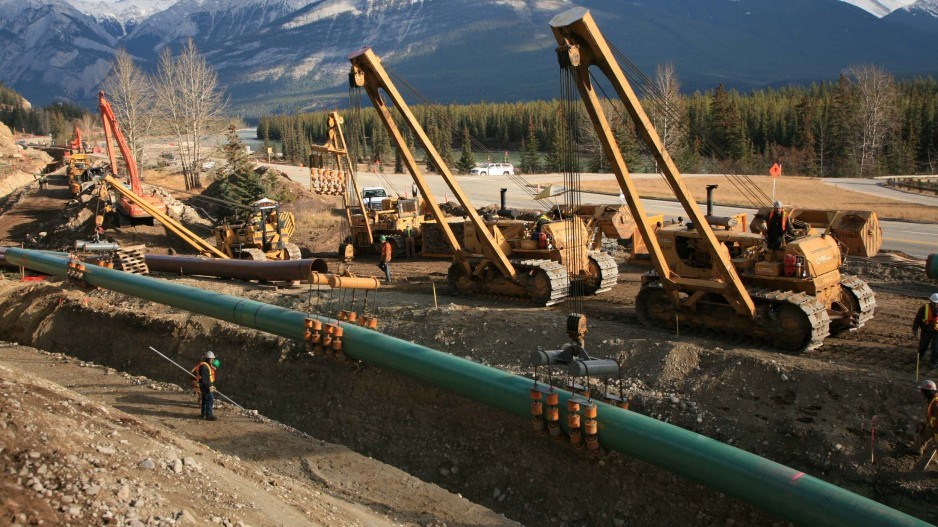Despite concluding the greenhouse gases from the project will be “significant” and that increased oil tanker traffic will likely have “significant adverse effects” on resident killer whales, the National Energy Board (NEB) last week recommended the project’s approval, subject to 157 conditions.
One of those conditions is that the company offset greenhouse gases from construction to zero through a carbon offset program. It’s the first time a major project has been required to pay offsets.
“The board is of the view that overall, with the implementation of Trans Mountain’s environmental protection procedures and mitigation, and the board’s recommended conditions, the project would not likely cause significant adverse environmental effects,” said NEB chief environment officer Robert Steedman. “Taking into account all the evidence, considering all relevant factors, and given that there are considerable benefits nationally, regionally and to some degree locally, the board found that the benefits of the project would outweigh the residual burdens.”
The final go-ahead, however, rests with the federal government, which is expected to make a final decision by the end of this year.
But before that happens, a newly struck three-person panel will conduct a whole new round of consultation to get feedback from communities and First Nations.
The new panel, announced last week, includes former Tsawwassen First Nation chief Kim Baird, former Yukon premier Tony Penikett and Annette Trimbee, a former deputy minister for the Government of Alberta.
Kevin Hanna, director for the Centre for Environmental Assessment Research at the University of British Columbia, said the NEB process was seen as flawed and unfairly skewed in favour of a yes.
The new panel set up is intended to address some of the concerns that the public and First Nations weren’t adequately consulted. But at the end of the day, Hanna thinks the federal government will approve the expansion.
“I believe the final decision, all said and done, will be yes,” he said. “The Alberta economy is hurting; the pipeline is seen as being an answer, in part, to their problems. I don’t see that the government will say no.”
The new panel can expect to get an earful from some First Nations, notably the Tsleil-Waututh, which has vowed to stop the project at all costs.
The cities of Burnaby and Vancouver are also opposed to pipeline expansion because of the increase in oil tanker traffic it would bring.
The B.C. government, as well, has stated it can’t support the project because it has failed to meet its five conditions for approval.
The 1,150-kilometre-long, 60-year-old pipeline running from Alberta to Burnaby will be expanded to increase capacity to 890,000 barrels per day (bpd) from the current 300,000.
That increase will require up to 34 oil tankers per month moving up Burrard Inlet to the Westridge Marine Terminal in Burnaby.
Thirteen oil companies have off-take agreements that, when fully subscribed, would account for 707,500 bpd. Most of that oil would be shipped to refineries in the U.S. and Asia.




